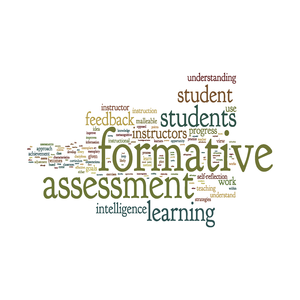Benefits of Formative Assessment to help Students' Growth
 The traditional teaching and learning methodologies have put massive pressure on the shoulders of the students. Another crucial fault of the conventional method of teaching followed is that they only give importance to the scores attained by the students in the tests. This has made many students to become test-oriented rather than becoming learning-oriented. With growing concerns regarding this massive downfall in the education system, many pioneering institutes have jumped boat towards formative assessment. Formative assessment consists of various formal and informal evaluations conducted by the teachers or trainers over the course of the entire learning process to modify the teaching and learning activities that in turn will improve the students’ ability to learn. This assessment gives importance to constant monitoring that is individualistic in nature. The entire process of this assessment starts even before the syllabus begins and the teachers will assess the students’ knowledge prior to the beginning of the class. This method will allow the teachers to identify the comprehension capability of the students and help the students to improve their learning abilities. While implementing formative assessment can demand time and effort from both the teachers and educational institutes, the results of this assessment method are unrivalled by other conventional assessment methodologies. Some of the sure benefits of adopting formative assessment in educational institutions are:
The traditional teaching and learning methodologies have put massive pressure on the shoulders of the students. Another crucial fault of the conventional method of teaching followed is that they only give importance to the scores attained by the students in the tests. This has made many students to become test-oriented rather than becoming learning-oriented. With growing concerns regarding this massive downfall in the education system, many pioneering institutes have jumped boat towards formative assessment. Formative assessment consists of various formal and informal evaluations conducted by the teachers or trainers over the course of the entire learning process to modify the teaching and learning activities that in turn will improve the students’ ability to learn. This assessment gives importance to constant monitoring that is individualistic in nature. The entire process of this assessment starts even before the syllabus begins and the teachers will assess the students’ knowledge prior to the beginning of the class. This method will allow the teachers to identify the comprehension capability of the students and help the students to improve their learning abilities. While implementing formative assessment can demand time and effort from both the teachers and educational institutes, the results of this assessment method are unrivalled by other conventional assessment methodologies. Some of the sure benefits of adopting formative assessment in educational institutions are:
1. Learning Goals are Well Defined: With the students being closely monitored, they will have a clear understanding of the target that they should work towards. This will also help the teachers to help students even before they start to deviate and get off track.
2. Creating Rigorous Learning Platforms: Following formative assessment will help teachers to gather information about the current abilities and needs of the students. Once the teacher get a clear understanding of what each and every student need, then they can create a rigorous learning environment for the students that is aimed at making each and every one of the student successful.
3. Improvements in the Academic Achievements: With the teachers getting constant feedback from the students, the teachers will have a clear understanding of where each and every student stands in the learning curve. Later this will help teachers to create unique learning plans and strategies’ that bridge the gap between the students’ present knowledge and their learning goals.
4. Increased Student Motivation: The truth of the matter is, when the students have a clear aim of what they need to achieve, the academic results will improve multifold. The systematic method of setting learning goals will help students to be motivated to achieve that goal.
5. Student Engagement will Increase: The students will see the progress that they are making and this will generate more engagement from the side of the students. By linking the learning objectives with real-life problems, the students’ natural curiosity towards the world and the subjects that they are learning will also increase.
6. Encouraging Self Regulated Learning: Another key feature of formative assessment is that the students will take the responsibility of learning and achieving their goals. This will in turn help students to regulate their own learning to achieve their learning objectives. By providing students with top-notch work along with various opportunities to review and correct their own work teachers will bring out the autonomous and independent learners in their students.
7. Changing to Data-Driven Decisions: While the traditional educational assessment relied heavily on the gut feeling of the teachers, formative assessment gives importance to the decisions that are taken on the basis of the gathered data. This will help to reduce the subjective errors that might have happened in other traditional education assessment models.
Altogether formative assessment improves the performance of both the teachers and the students along with increasing the bond between them which is crucial to develop students into successful and inspired individuals.

